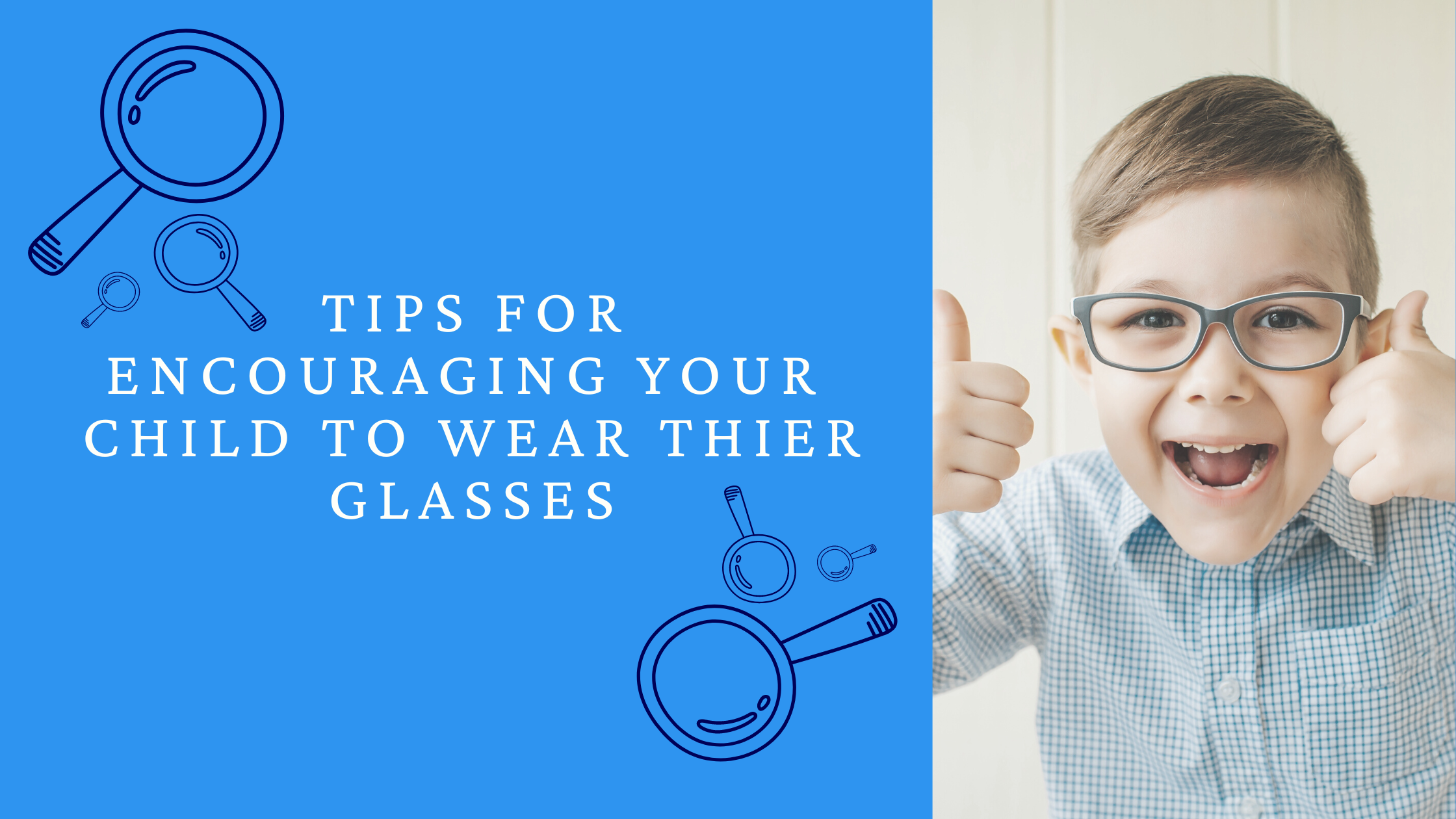 Many children are excited when told they need glasses. These are often the children who love a little extra attention or enjoy standing out. They like to mix things up a little. Then, the novelty of wearing glasses wears off, they are the same kid they always were, and everything goes back to how it was before—everything, except the added responsibility that comes with taking care of their glasses. Sometimes (and we adults can more often than not relate to this as well), it’s easier to leave the glasses in their case and forget about them.
Many children are excited when told they need glasses. These are often the children who love a little extra attention or enjoy standing out. They like to mix things up a little. Then, the novelty of wearing glasses wears off, they are the same kid they always were, and everything goes back to how it was before—everything, except the added responsibility that comes with taking care of their glasses. Sometimes (and we adults can more often than not relate to this as well), it’s easier to leave the glasses in their case and forget about them.
However, the reason the child needs to wear glasses in the first place is to keep their vision from deteriorating. Not wearing them can be as bad for the eyes as never getting diagnosed at all. But try telling that to a child whose most immediate need is knowing what’s for lunch. Kids often can process the idea of long-term consequences. That’s why parents need to stay on top of the game, making sure their children wear their prescribed glasses. Since that’s easier said than done, here are a few tips to help.
Get the Right Glasses
If you have a very young child wearing glasses, she may find them uncomfortable and try to take them off whenever possible. If the problem appears to be the glasses bouncing around on her nose when she’s toddling around or even falling off as she moves, consider an elastic strap to help keep them on.
Older kids, too, might be uncomfortable wearing their specs and thus “forget” to wear them. For this reason, spending plenty of time choosing frames that look as good as they feel is essential.
But don’t take appearance for granted, especially with older kids. Make sure they have input on the frames, no matter how strange they might appear to you. Kids know what’s popular in school and around them, and it’s one battle you can let them win. (Within reason, of course. Price should be a consideration.) The right glasses could be a fashion statement that makes an older child want to be seen in them as often as possible.
Praise Your Child for Wearing Their Glasses
While it may only work until you have your child into a good routine, the more she hears you praise her for wearing her glasses, the more her brain reinforces the idea that she should wear them more often. You can also work into the conversation about how she is improving her eye health by doing so and reducing the risk of her vision getting worse.
In contrast, try not to nag your child about their glasses. Children don’t work well with nagging. She will see glasses-wearing as one more chore to do; of course, no child wants that.
Create a Routine
One way to avoid that nagging is to create a routine that includes putting glasses on at a specific time in the morning. Getting a child into a routine is helpful and may reduce fighting over many hygienic activities, like washing face and hands or brushing hair and teeth. A chart might be necessary to get a routine started. Young children might enjoy bright colors and stickers. A weekly reward for completing tasks will be a sure way to get your child to check off as many tasks as are listed.
One thing that should not be on the chart would be finding the glasses. Your child’s glasses should have a special place where he knows where to get them. Keep a hard case in this place so he knows where to put the glasses when it’s time to go to bed at night. Make putting on glasses a logical step in the routine, maybe after getting dressed. When it’s decided when the glasses go on, then you can choose where to store them until they are ready to be worn.
Get Teachers, Coaches, and Other Adults on Board
Be sure the adults around your child are aware of their new glasses. Your child might not wear his glasses to gym class or the library, which can cause more eye strain or even be dangerous. If your child cannot see a ball coming his way, he could get hit. Likewise, your child might need to continue wearing his glasses during his sports practices and games. Beyond the danger of being hit, not seeing what’s going on will undoubtedly affect his playing. To avoid the coach’s wrath, have Junior tell him he needs to have his glasses on. Not wearing glasses to a library or any other class that requires extra close attention or reading could exasperate his condition. The more adults who have eyes on your child, the less chance of him trying to get away without them.
Getting your children to wear their glasses faithfully is more than a pipe dream. It’s as important as feeding them a healthy diet or getting them to the doctor when they are sick. Completely disregarding a diagnosis, ignoring a lens prescription, and letting them get away with not wearing their glasses could lead to diminished vision. Create a responsible child and set them up for success.
If your child has not been diagnosed with an eye condition, but you suspect he might have something going on behind those eyelids that isn’t right, consider downloading the Kids Vision Check app. You’ll quickly get through a simple screening that will help determine if you should seek additional care for his eyesight.
